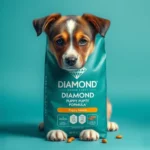
Introduction
When it comes to nurturing our furry companions, dog nutrition plays a pivotal role. Providing a balanced diet is crucial for maintaining their health, energy levels, and overall well-being. Understanding the ingredients in dog food is essential, as this knowledge empowers pet owners to make informed decisions that benefit their dogs.
Among the myriad of ingredients found in dog food, two controversial additives that have raised significant concern are BHA (Butylated Hydroxyanisole) and BHT (Butylated Hydroxytoluene). Both are synthetic preservatives commonly used to extend shelf life, but their potential health risks have led many pet owners to question their safety. This article aims to shed light on why you should avoid BHA and BHT dog food ingredients and guide you toward healthier alternatives.
Understanding Dog Nutrition
Basic Nutritional Needs of Dogs
To ensure that dogs thrive, it’s essential to recognize their basic nutritional needs, which can be broken down into macronutrients and micronutrients:
- Macronutrients
- Proteins: Vital for growth, repair, and maintenance of body tissues. Quality protein sources include meat, fish, and eggs.
- Fats: Provide energy and support cell function. Healthy sources include chicken fat, fish oil, and flaxseed oil.
-
Carbohydrates: While not essential, carbohydrates can provide energy and aid in digestive health. Opt for whole grains like brown rice and oats.
-
Micronutrients
- Vitamins: Essential for various bodily functions, vitamins support immune health, vision, and skin health.
- Minerals: Important for bone health, muscle function, and overall physiological processes. Calcium, phosphorus, and potassium are key minerals.
How Dog Nutrition Differs from Human Nutrition
Dogs’ digestive systems differ from humans in several ways, necessitating specific dietary requirements. For instance, dogs are not obligate carnivores like cats but require a balanced diet that includes both animal and plant-based ingredients. Their digestive enzymes and gut microbiota are adapted to break down a variety of foods, but certain human foods can be toxic to dogs, highlighting the importance of tailored nutrition.
Common Dog Food Ingredients
Natural vs. Artificial Ingredients
When selecting dog food, understanding the difference between natural and artificial ingredients is crucial:
-
Natural Ingredients: These are derived from whole foods without synthetic additives. Examples include fresh meats, vegetables, and whole grains. Natural ingredients often provide better nutritional value and are easier for dogs to digest.
-
Artificial Ingredients: These include synthetic preservatives, colors, and flavors that can pose health risks. Many artificial ingredients, including BHA and BHT, may contribute to long-term health issues and should be avoided.
Reading Dog Food Labels
Understanding how to read dog food labels is essential for making informed decisions:
- Ingredients List: Ingredients are listed in descending order by weight. The first few ingredients should be high-quality proteins, followed by whole grains and vegetables.
- Nutritional Adequacy Statement: Look for a statement indicating that the food meets the standards set by the Association of American Feed Control Officials (AAFCO).
- Avoid BHA and BHT: Be vigilant about spotting these preservatives in the ingredient list and steer clear of any products containing them.
What are BHA and BHT?
Chemical Composition and Purpose
BHA and BHT are synthetic antioxidants used primarily as preservatives in processed foods, including dog food. They prevent fat oxidation, which helps maintain the food’s flavor and shelf life. However, their chemical compositions raise concerns among veterinarians and pet nutritionists.
Health Concerns Associated with BHA and BHT
Research around the health implications of BHA and BHT has revealed troubling findings:
- Potential Health Risks: Studies suggest that these preservatives may be linked to various health issues, including cancer, allergies, and endocrine disruption in both humans and animals.
- Toxicity Studies: Reports indicate that high doses of BHA have been associated with tumors in laboratory animals, raising alarms about their safety in pet food.
Why You Should Avoid BHA and BHT
Alternatives to Chemical Preservatives
Fortunately, there are natural alternatives to BHA and BHT that can safely preserve dog food:
- Tocopherols: Also known as Vitamin E, tocopherols are natural preservatives that help prevent oxidation and maintain freshness.
- Rosemary Extract: This natural herb not only acts as a preservative but also offers potential health benefits, including anti-inflammatory properties.
Choosing dog foods that utilize these natural preserving agents can significantly reduce health risks for your dog.
The Impact of BHA and BHT on Dog Health
Long-term consumption of dog food containing BHA and BHT can have detrimental effects on canine health. Potential consequences include:
- Increased Cancer Risk: The carcinogenic potential of these additives has raised red flags among pet owners and veterinarians alike.
- Allergic Reactions: Some dogs may develop sensitivities or allergies to synthetic preservatives, leading to skin issues and digestive problems.
Selecting high-quality dog food that avoids harmful ingredients is paramount for your dog’s long-term health.
How to Choose the Right Dog Food
Identifying High-Quality Dog Food Brands
When navigating the pet food aisle, look for brands that prioritize ingredient quality and transparency:
- Reputable Brands: Choose companies that are well-regarded in the industry, with a focus on high-quality, whole-food ingredients.
- Transparency: Brands that openly share sourcing information and production practices are more likely to offer safe, nutritious options.
Recommendations for Dog Food Brands
Here are some top-rated dog food brands that avoid BHA and BHT:
- Orijen: Known for its biologically appropriate formulas, Orijen uses fresh, regional ingredients and avoids artificial preservatives entirely.
- Wellness Core: This grain-free option is packed with high-quality proteins and natural preservatives, making it a great choice for health-conscious pet owners.
- Blue Buffalo: Offers a wide range of natural dog foods and is committed to avoiding harmful additives, including BHA and BHT.
DIY Dog Food Options
For pet owners interested in a more hands-on approach, homemade dog food can offer complete control over ingredients:
- Benefits of Homemade Dog Food: Preparing meals at home allows you to choose fresh, high-quality ingredients while avoiding harmful preservatives.
- Basic Recipes for Balanced Dog Meals: A simple recipe could include boiled chicken, brown rice, and steamed vegetables. Always consult with a veterinarian to ensure balanced nutrition.
Educating Yourself and Others
Importance of Staying Informed
Staying updated on dog nutrition is crucial for making informed decisions about your pet’s diet:
- Research: Regularly review new studies and findings related to dog nutrition.
- Resources for Pet Owners: Consider books, reputable websites, and courses focusing on canine diet and health.
Advocating for Better Dog Food Standards
Awareness around harmful ingredients is vital in advocating for better standards:
- Raising Awareness: Share information about the risks of BHA and BHT with fellow dog owners and encourage them to check labels.
- Supporting Transparency: Advocate for transparency in ingredient sourcing and encourage pet food brands to disclose information about their products.
Conclusion
In summary, the importance of avoiding harmful ingredients like BHA and BHT in dog food cannot be overstated. By understanding the nutritional needs of dogs, recognizing the potential dangers of synthetic preservatives, and choosing high-quality food options, pet owners can significantly enhance their furry friends’ health and longevity. Together, we can promote better food choices for our beloved pets and ensure they lead happy, healthy lives.









